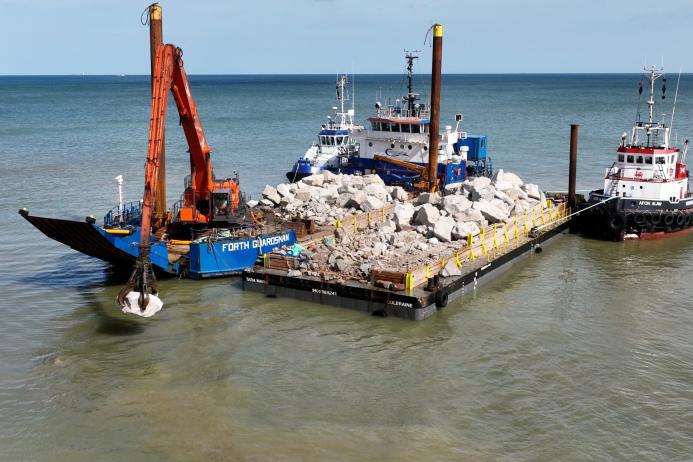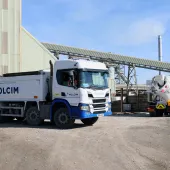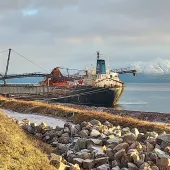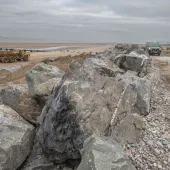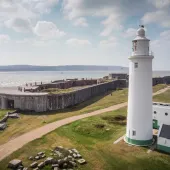Protecting Norfolk’s fast-eroding coastline
Aggregate Industries supply 70,000 tonnes of rock armour for coastal-management schemes
THE East coast of England is one of the fastest-eroding shorelines in Europe, with homes and communities already suffering the consequences of the relentless force of the North Sea. To protect the region and its sandy cliffs, North Norfolk Council has recently undertaken two coastal-management schemes at Cromer and Mundesley, which have seen 70,000 tonnes of rock armour laid across the shoreline.
Contractors Balfour Beatty partnered with Aggregate Industries to specify their rock armour. Utilized in three different sizes (3–6 tonnes, 300–1,000kg, and 15–30kg), once in situ the products will effectively negate the accelerating coastal erosion.
Selected for their unique logistical capabilities, Aggregate Industries supplied the rock armour from their flagship Glensanda Quarry on the west coast of Scotland. The product was shipped to the east coast where the boat anchored at sea, with a smaller barge transporting approximately 1,000 tonnes of aggregates to the beach twice a day at high tide.
Nick Gilbert, business development manager at Aggregate Industries, said: ‘As soon as we were approached to be involved in this scheme, we knew our rock armour and logistical solutions would perfectly fit the bill.
‘The East of England lacks the natural hardstone quarries that can produce the necessary size and quantity of rock required for this project. Our ability to anchor a boat at sea and deliver aggregates by barge is ideal for coastal-management projects and minimizes disruption to the surrounding communities.
‘A lot of thought and planning went into the route and anchoring for this project, bearing in mind the fishing and crabbing industry in this part of the country, as well as service lines that run under the seabed.’
The Cromer and Mundesley coastal-management schemes received £25million in funding from the Environment Agency, North Norfolk Council, Anglian Water, and Mundesley Parish Council.
The Mundesley shoreline project was undertaken first and covers 2km in total, with the Cromer coastal-management scheme following shortly after and comprising 300m of rock revetment west of the pier. Both projects also involved repair works to groynes, navigation aids, and additional sea wall protection.
A spokesperson for Balfour Beatty said: ‘Working with North Norfolk Council on the Cromer and Mundesley schemes, we understood the vital importance of protecting both of these shorelines and thus a hard-wearing and reliable product was essential. Logistically, this project presented a challenge, but Aggregate Industries’ ability to deliver the rock by sea was really groundbreaking for this project and enabled it to run smoothly and on time.’

